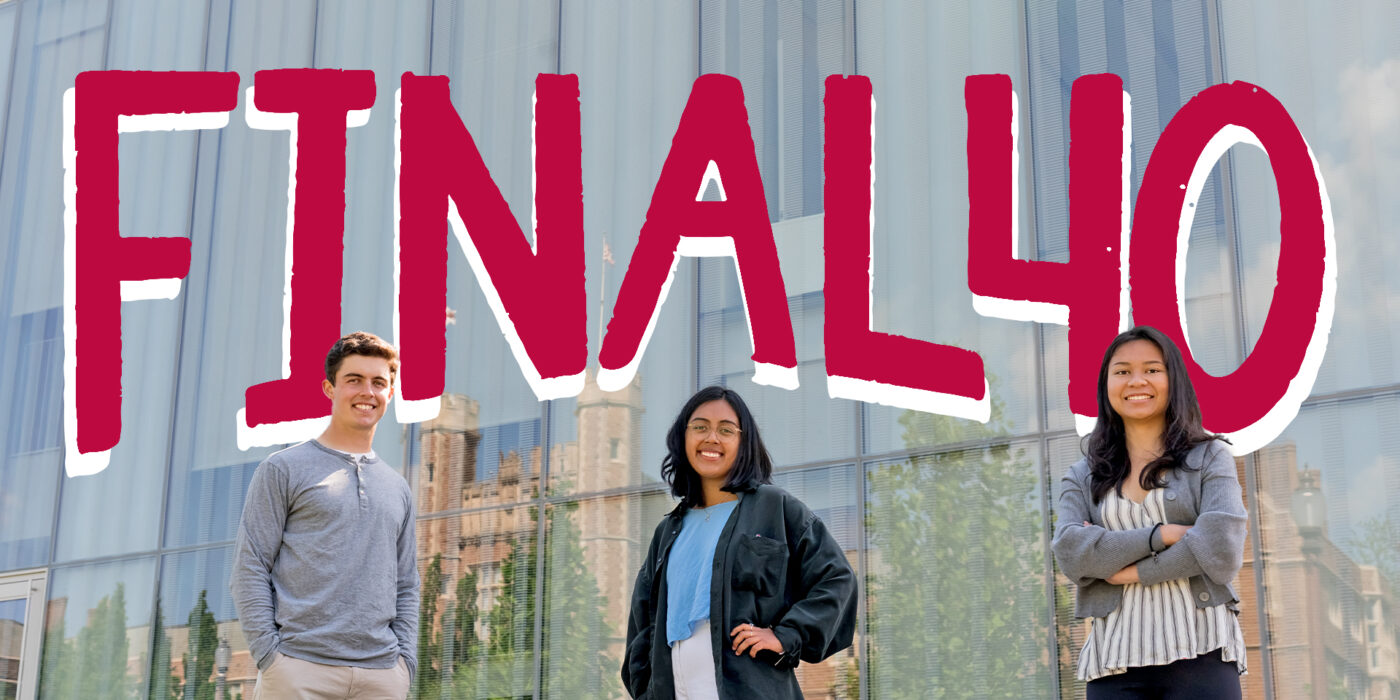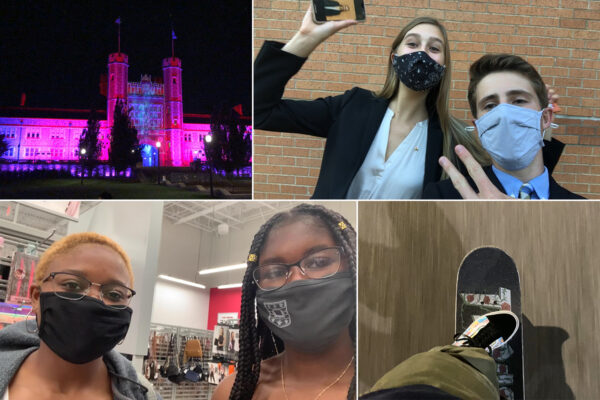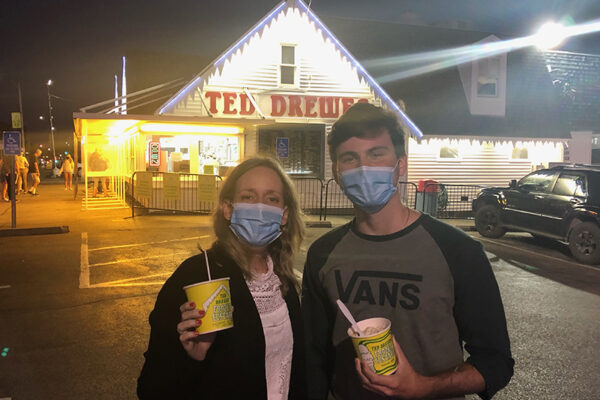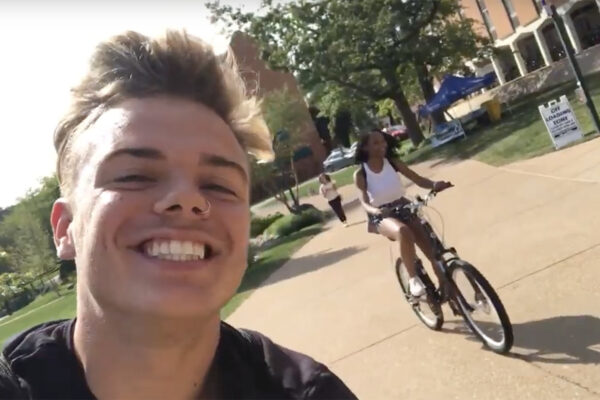Four years ago, new students Jazmin Garcia of Evanston, Illinois; Astrella Sjarfi of Jakarta, Indonesia; and Tim Tague of Orinda, California, shot a single second of video every day for their first 40 days at Washington University in St. Louis. They captured convocation in the Athletic Complex and pizza at Bear’s Den, trips to the Gateway Arch and construction on the east end, late nights at Olin and WILD in the Quad.
So much has changed since their arrival in 2017. Each switched majors and learned to live on their own. And then COVID hit. Sjarfi completed her junior year at home, taking classes synchronously 12 times zones away. Garcia witnessed the pandemic’s devastating impact on the uninsured immigrants she served as a Gephardt Institute Civic Scholar. And Tague, a member of both the Bears football and baseball teams, lost two seasons of play.
But they pushed through and graduated in May, surrounded by family and friends on Francis Field. No longer a student, but still a Bear, Tague even helped his team reach the NCAA Division III Baseball World Series in June. The No. 1 ranked Bears were eliminated before reaching the championship game.
To mark the end of their college careers, Washington Magazine asked Garcia, Sjarfi and Tague to shoot a second of video for their final 40 days and invited them to meet for the very first time.
Each of you took an unexpected academic journey. Tell us more.
Garcia: I came here thinking I wanted to be a PNP (philosophy-neuroscience-psychology) major, but then I realized I didn’t really enjoy philosophy. But I took an anthro class and realized, “Hey, maybe this is for me.” I’m really happy with the home I found in the global health program.

Tague: I wanted to major in mechanical engineering because it was the only type of engineering I knew. But then I learned about systems engineering. I really like how broad it is. I’ve been able to take a variety of classes from computer science to business with a variety of students. It’s given me a chance to experience more parts of WashU.
Sjarfi: I didn’t see myself as a writing minor. Unlike most people, I really liked my college writing class. So I just continued taking classes. There is an understanding that what is shared in class stays there, so I was able to share some really personal stuff. The experience was really cathartic.
What was your favorite co-curricular activity?
Sjarfi: When I first got here, I was overwhelmed with all of the opportunities available, so I signed up for all of these clubs. But Ultimate is what I really loved — the team dinners and traveling to tournaments in these small towns in the Midwest. I also loved the sport — throwing a disc is so satisfying.

Garcia: I really liked the communities I had as a Civic Scholar and as a Rod (Rodriguez Scholar). But the rock climbing community here was also really important to me. We would practice a few times a week for four hours at a time, which was not a time commitment I expected to dedicate to a club I randomly decided to join my freshman fall. But I loved it because the people were so welcoming and supportive.
Tague: Being part of the Bears Club running team had a big impact on me. We work with children who have mental, physical or developmental disorders. I was able to make great friends with other WashU student-athletes as well as with Jack, the kid I worked with, and his family.
How has your ‘Final 40’ been different from your ‘First 40’?
Garcia: My first 40 was full of new things: exploring campus, learning about St. Louis. Now it’s about documenting smaller things. Instead of the excitement of, “I’m going to this place for the first time,” there is the nostalgia of, “I’m going to this place for the last time.”
Sjarfi: I felt that way when I went to BD (Bear’s Den) last week. I really like the fries there, so we went back to get the half-and-half (the fries and chicken tenders platter). It was nice to be sitting there hearing the music in the background and thinking about the all-nighters and good times I’ve had there. I feel bad that the new students didn’t get to make those memories.
Tague: These 40 days are a lot different from the first. There’s a lot more of me at the computer or cooking or at practice because it’s hard to do much of anything else during COVID. Still it’s fun to capture these moments. I don’t want to take any of these memories for granted.




